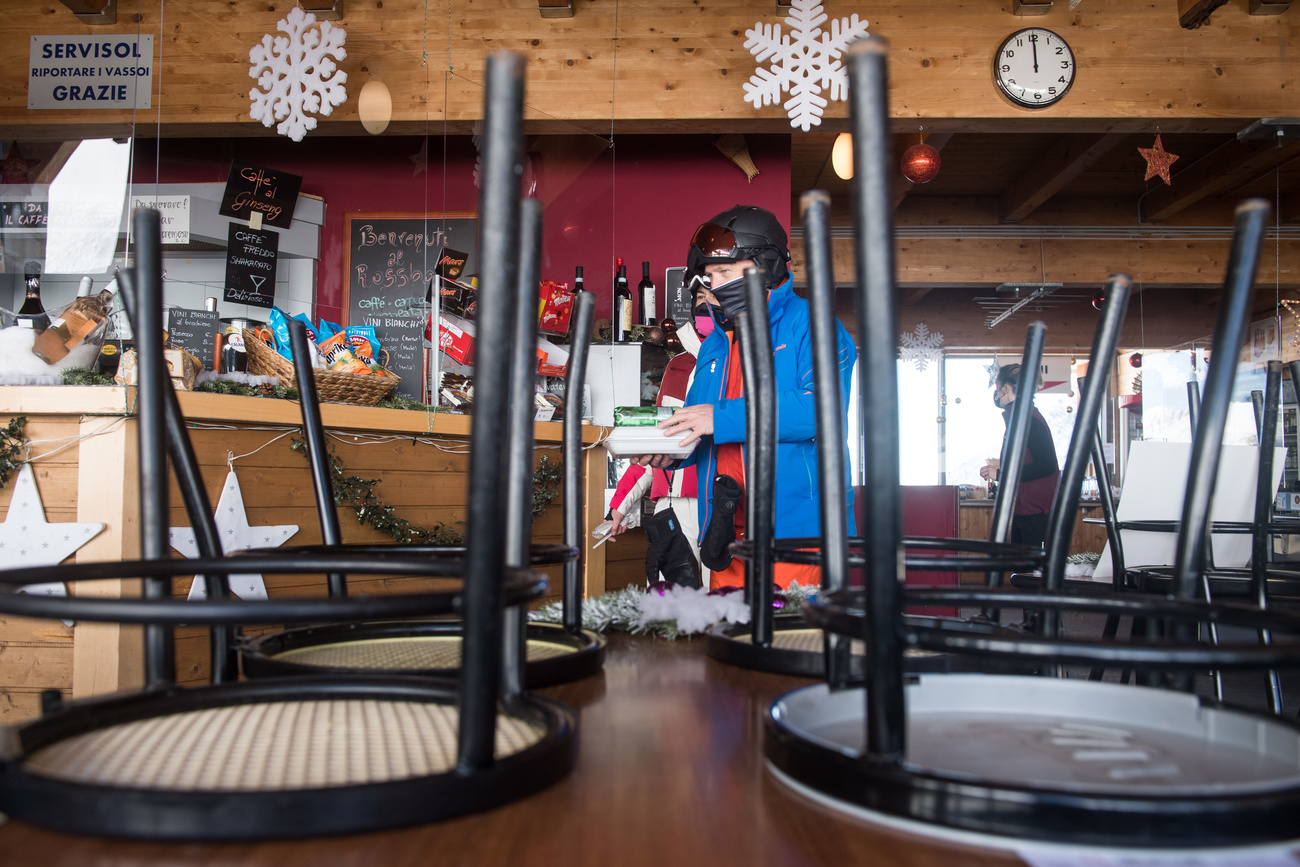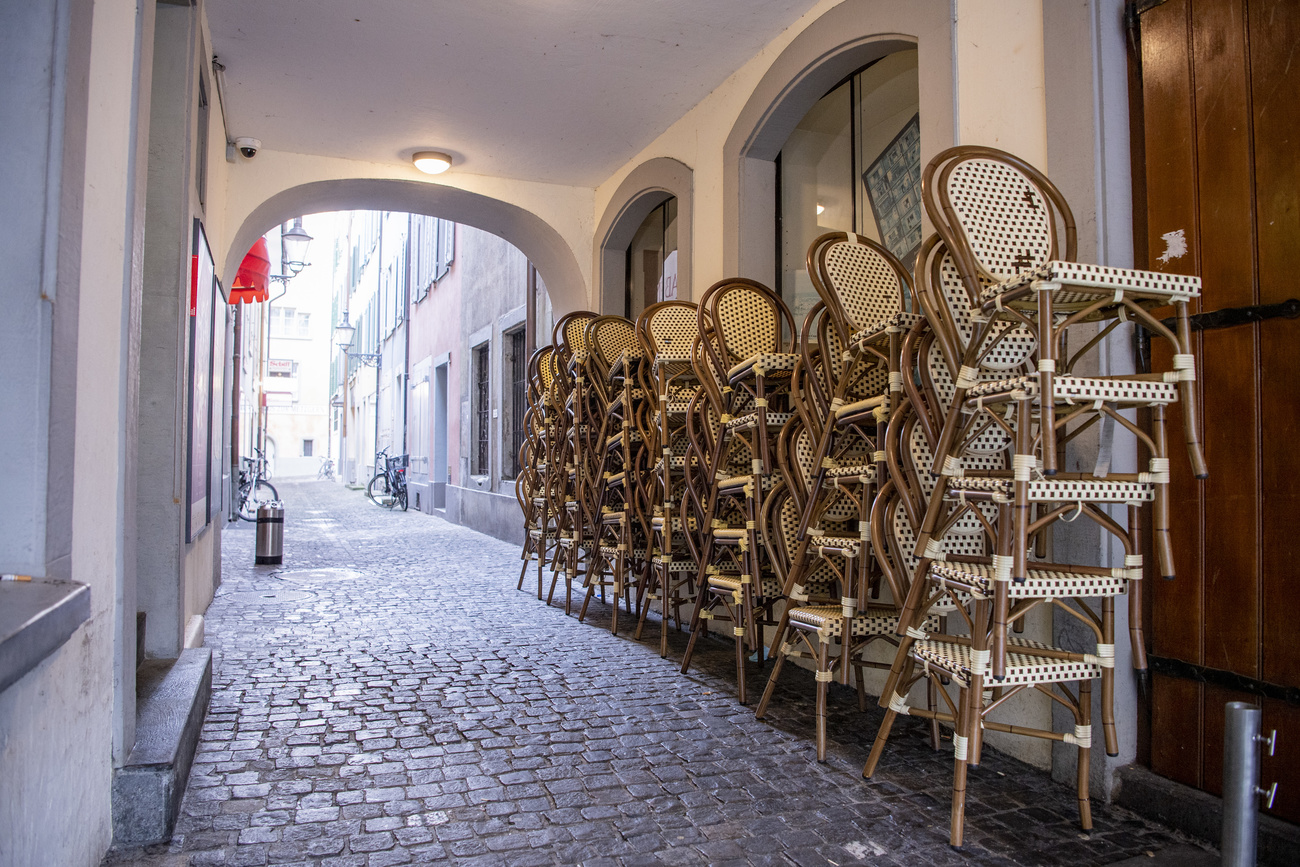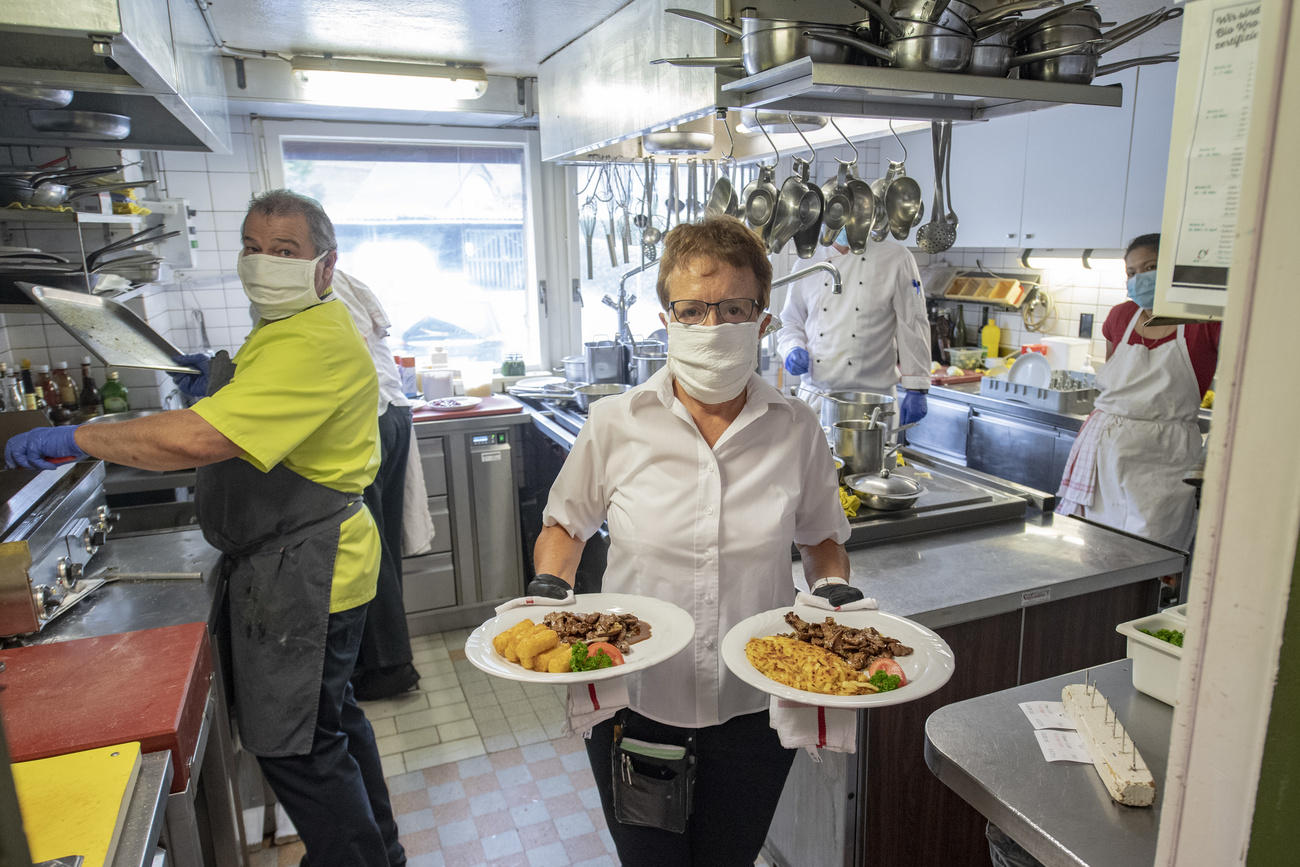Switzerland to enter new lockdown amid more contagious virus strains

The government has announced the closure of non-essential shops and mandatory teleworking from January 18 as well as the extension of restaurant and sports facilities closures.
President Guy Parmelin said the government had adopted these measures in a bid to “drastically reduce contacts” amid concerns that the highly contagious virus variant could lead to a resurgence in cases next month.
“It is not a decision taken lightly,” said Parmelin at a news conference on Wednesday attended by the finance and the interior ministers. “But it is absolutely necessary.”
Parmelin appealed for an “extra effort” from all sides to try to prevent a third wave of infections. “We will only come through it together,” he said, calling on critics of the government policy to show understanding.
Included in the new measures are the closure of non-essential shops and mandatory working from home as of Monday, January 18. Private and public gatherings are subject to a limit of five people, including children, and masks will be required in workplaces even if distance is respected.
Service providers such as banks, hair salons, post offices and mobile phone stores are allowed to stay open but are subject to a curfew of 7pm and will have to close on Sunday. However, this curfew will no longer apply to kiosks and petrol station shops. Ski resorts are able to stay open provided they comply with protection measures.
Until March
The government has also extended the measures adopted in December by five weeks until the end of February. This included the mandatory closure of restaurants, bars and sports facilities.
“Despite this tightening of measures, there is no clear downward trend so far,” said Interior Minister Alain Berset whose portfolio includes health matters. New cases reached over 10,000 last autumn and dropped to around 3,000 but have stagnated at this level over the past few weeks.
“It is not a question of whether to put in place measures, but when” he said, adding that if nothing is done now even tighter restrictions may be necessary later.
The government has not announced the closure of schools as during the first wave in spring but said that it remains an option. The government has called on cantonal authorities to determine the best protection measures in schools.
Although new infections have been declining in recent weeks, the government said it was concerned about the two highly contagious variants first reported in Britain and South Africa. Countries such as Ireland and the UK have seen a rapid rise in cases – something the Swiss government aims to prevent with the new measures. According to initial estimates, the new variants are 50-70% more contagious.
On December 20, Switzerland imposed an entry ban on travellers from the UK and South Africa following reports of the new strain. Only Swiss and Lichtenstein nationals and their families can fly into Switzerland from these countries, as well as holders of a Swiss residence permit.
On Monday, officials cancelled the Lauberhorn World Cup downhill ski race over fears that a single British tourist was the source of a rapid rise in infections among the local population in Wengen.
On January 6, the government announced that it had prepared proposals on how to bring down infection rates that it planned to discuss with the cantons. A final decision would be announced on January 13.
The Federal Office Public Health said on January 12 that despite stagnating infection rates the level remained “too high”. The average reproduction “R-rate” is 1.02. Hospitalisations and deaths have decreased slightly but around 74% of intensive care beds are occupied.
Economic relief
On Wednesday, the government said it was providing additional support to economic sectors affected by the measures. Companies that have been closed by the authorities for at least 40 days since November 1, 2020 will be considered hardship cases. This would include restaurants, sports facilities as well as stores. Companies will also be able to claim lost sales in 2021.
Restaurant and hotel industry have been calling for more support since the closures went into effect in December. Last Sunday the sector’s umbrella organisation warned that half of all hotel and restaurant businesses in Switzerland will go bankrupt by the end of March if they do not receive immediate financial compensation.
An estimated 100,000 companies, notably from the restaurant, hotel and retail sector are likely to apply for emergency financial aid according to Finance Minister Ueli Maurer. He said it was not possible yet to say how much this will cost.
There is some light at the end of the tunnel. On Tuesday, health regulator Swissmedic has given the green light for the ‘immediate’ use of the vaccine produced by US company Moderna. The country has already pre-ordered 7.5 million shots, 200,000 of which will be delivered on Wednesday.

In compliance with the JTI standards
More: SWI swissinfo.ch certified by the Journalism Trust Initiative



You can find an overview of ongoing debates with our journalists here. Please join us!
If you want to start a conversation about a topic raised in this article or want to report factual errors, email us at english@swissinfo.ch.